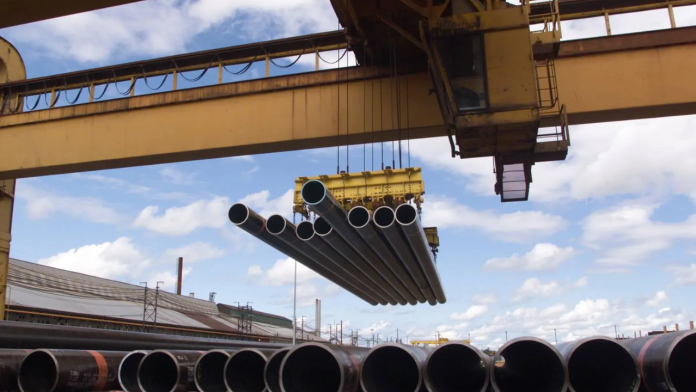Steel pipe producers are essential to the world’s infrastructure because they provide various pipes for use in the transportation, energy, and construction sectors. These companies use digitalization, precision manufacturing techniques, and sophisticated materials to improve product quality and sustainability.
Options for customization meet specific project needs, and adherence to global standards guarantees dependability and security steel pipe manufacturer are essential to many applications, such as structural support and fluid transfer. Manufacturers stay innovative as the industry develops, helping to provide strong, eco-friendly solutions that satisfy the needs of contemporary industrial projects and infrastructure.
The Main Sectors Using Steel Pipes
Steel pipes are vital parts of many different industries because of their strength, resilience, and adaptability. Several significant industries that mostly depend on steel pipes are:
Oil and Gas Sector:
Among the biggest users of steel pipes is the oil and gas sector. Oil and natural gas are transported across great distances using steel pipes. To guarantee the integrity and safety of the transportation process, premium steel pipes are used in the construction of pipelines, both onshore and offshore. Steel is a perfect material for such crucial applications because of its resilience to corrosion and tolerance to high temperatures.
Building and Infrastructure:
Steel pipes are essential for providing structural support in the building industry. They are employed in the building of infrastructure projects like bridges and buildings. Steel pipes are appropriate for load-bearing buildings because of their great tensile strength. Numerous construction projects are more stable and long-lasting due to their resistance to corrosion and severe weather.
Water and Sewerage Systems:
A large number of steel pipes are used in sewerage and water supply systems. They are a great option for long-distance water transportation because of their robustness and ability to withstand corrosion. Steel pipes are also utilized in sewage systems because of their resistance to the corrosive properties of wastewater. Steel pipes are used by water authorities and municipalities all over the world to guarantee the effective and dependable distribution of water.
Automotive sector:
The production of exhaust systems in the automotive sector is dependent on steel pipes. Steel is suited to handle car exhaust fumes due to its tolerance to high temperatures. Exhaust systems with steel pipes improve overall vehicle performance, emission management, and fuel economy. Steel pipes are a crucial component in the production of automobiles because of their strength and resilience under adverse driving conditions.
Mining and Exploration:
Steel pipes are employed in the mining sector for several purposes, such as the movement of ores and minerals. Steel pipes are used in oil and gas exploration drilling operations to provide the infrastructure needed to extract lucrative resources from the earth. Steel pipes’ sturdy construction guarantees their dependability in the demanding conditions found in mining and exploration operations.
Agriculture and Irrigation:
To guarantee effective water distribution in fields, irrigation systems in agriculture use steel pipes. Steel can survive the rigors of agricultural applications due to its durability and resistance to environmental conditions. To encourage efficient and sustainable irrigation techniques and raise agricultural productivity, steel pipes are essential.
Renewable Energy Sector:
Steel pipes are used in a variety of ways in the renewable energy sector, which includes solar and wind power. Steel pipes are utilized in the wind energy industry to build wind turbine towers, which give the turbines the support they need. Steel pipes are also used to construct solar panel frames, which furthers the development of sustainable and clean energy sources.
Conclusion
Steel pipes are the backbone of many different industries, guaranteeing the effectiveness and integrity of vital operations. Their endurance and versatility make them vital for a wide range of applications, including renewable energy projects, water systems, and the transportation of gas and oil. Steel pipes continue to be essential in forming and maintaining the infrastructure that characterizes the modern world even as technological improvements continue.

